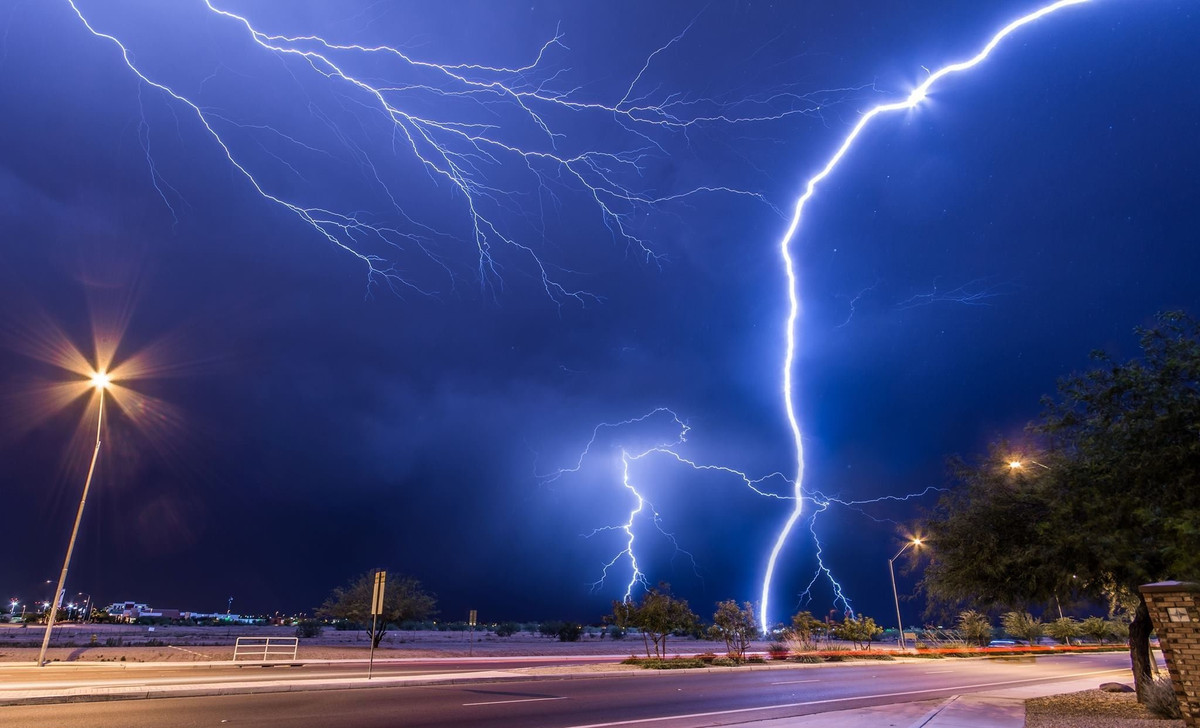When considering the materials that light poles are made from, we generally think of steel and aluminum. However, one of the most versatile materials that is used is fiberglass (aka carbon fiber). Unlike steel and aluminum, fiberglass is not a type of metal. This type of material has many benefits which include corrosion resistance.
In this article, we will explore the unique properties of fiberglass as it relates to light poles regarding durability and weather resistance.
How are fiberglass light poles made?
Fiberglass light poles have two primary components: fiberglass and epoxy or polyester resin. Fiberglass cords are produced using fiberglass strands that are wound together. These cords are dipped into a polyester resin bath and then heated and cured. They are then wrapped around a mandril to form them into the desired shape. After this, they are cut into the desired lengths. The resulting pole is then powder-coated or painted.

What is corrosion?
Corrosion is a naturally occurring, diffusion-controlled process that occurs on exposed surfaces. It transforms a processed metal into a more chemically stable oxide. It is defined as the gradual deterioration of a substance (usually metal) by chemical or electrochemical reactions with its environment.
Most types of metals are oxidized easily. They tend to lose electrons to oxygen present in the air or water. As oxygen gains electrons, it forms an oxide with the metal.
The most common types of corrosion are a result of electrochemical reactions. General corrosion happens when most (or all) of the atoms on the same metal surface are oxidized. This damages the entire surface. Corrosion can also be locally concentrated causing a pit or crack to form.
Common factors that contribute to corrosion include moisture, salt, and air pollutants.
It’s important to note that rust is a type of corrosion and corrosion is a type of oxidation. All rust is corrosion, while not all corrosion is rust.
What are the environmental considerations when choosing light pole materials?
The climate of the areas where light poles are installed is an important consideration. Some areas have harsher conditions than others, whether it’s due to rain, snow, wind, etc. It’s important to select weather-resistant light poles for your installation to ensure the safety and longevity of the area that you are illuminating.
Light poles installed in coastal areas require special considerations due to the environment. Seawater and hurricanes pose additional concerns that will drastically reduce their lifespan without additional layers of protection.
The salt in seawater is a major corrosion factor. Salt diffuses ions into water because it is an electrolyte. This intensifies the corrosion rate of metal. When combined with ocean air (which also contains salt), it causes steel to corrode 10 times faster than inland air with normal humidity.
Another environmental consideration is whether the light pole will be partially installed underground. Unlike anchor base poles, which are installed on top of a concrete foundation, direct burial poles are installed in a way that they are partially below grade (underground). This poses certain challenges concerning corrosion resistance. Like anchor base poles, they are exposed to moisture above ground. However, the section that is below ground is exposed to other things that contribute to corrosion.
The soil surrounding the pole not only contains moisture but can also contain high levels of acidity, chloride, sulfates, and organic content. These elements will accelerate the corrosion process, which is why you need to have corrosion-resistant light poles for direct burial installations.
Fiberglass composite material is corrosion-resistant. It is resistant to a broad range of chemicals and will not rust or corrode like metals. This makes it ideal for direct burial light pole installations.
Are fiberglass light poles resistant to extreme temperatures?
Fiberglass light poles have a high resistance to a wide range of extreme temperatures, hot and cold, without compromising their structural integrity. They are also uniquely resistant to fire, unlike other types of light pole materials. This makes them suitable for various climates and conditions, which ensures longevity and durability.
Additionally, they are non-conductive. This means that they are safe during electrical storms, unlike metal light poles.
Additional benefits of fiberglass light poles
Durability and resistance to corrosion are not the only reasons to choose fiberglass light poles for your project.
- They are highly resistant to harmonic vibrations. This makes them ideal for installations on bridges or parking decks. It also makes them the best choice for mounting security cameras.
- They are safer and easier to install than steel or concrete poles because they are lightweight and don’t require special equipment to lift them during the installation process.
- They provide long-term cost savings when compared to other types of light poles.
LightMart can help
Do you need fiberglass light poles for your lighting project? You can talk with the experts at LightMart to get a quote on cost. They can be reached by phone at (866) 442-6817, through our contact form, or by email at help@lightmart.com. The team at LightMart will work with your budget to find an ideal solution for your project’s requirements. Need to get them quickly? We offer a selection of quick-ship fiberglass light poles that are in stock and ready to ship.
David DeWald is the E-Commerce Marketing Specialist at LightMart. He has been working in the industrial and commercial lighting industry since 2013 and is based in the greater Chicago area. David specializes in digital product management, web content writing, and product marketing. He regularly publishes lighting industry-related articles on the LightMart blog. You can visit his LinkedIn profile here.
